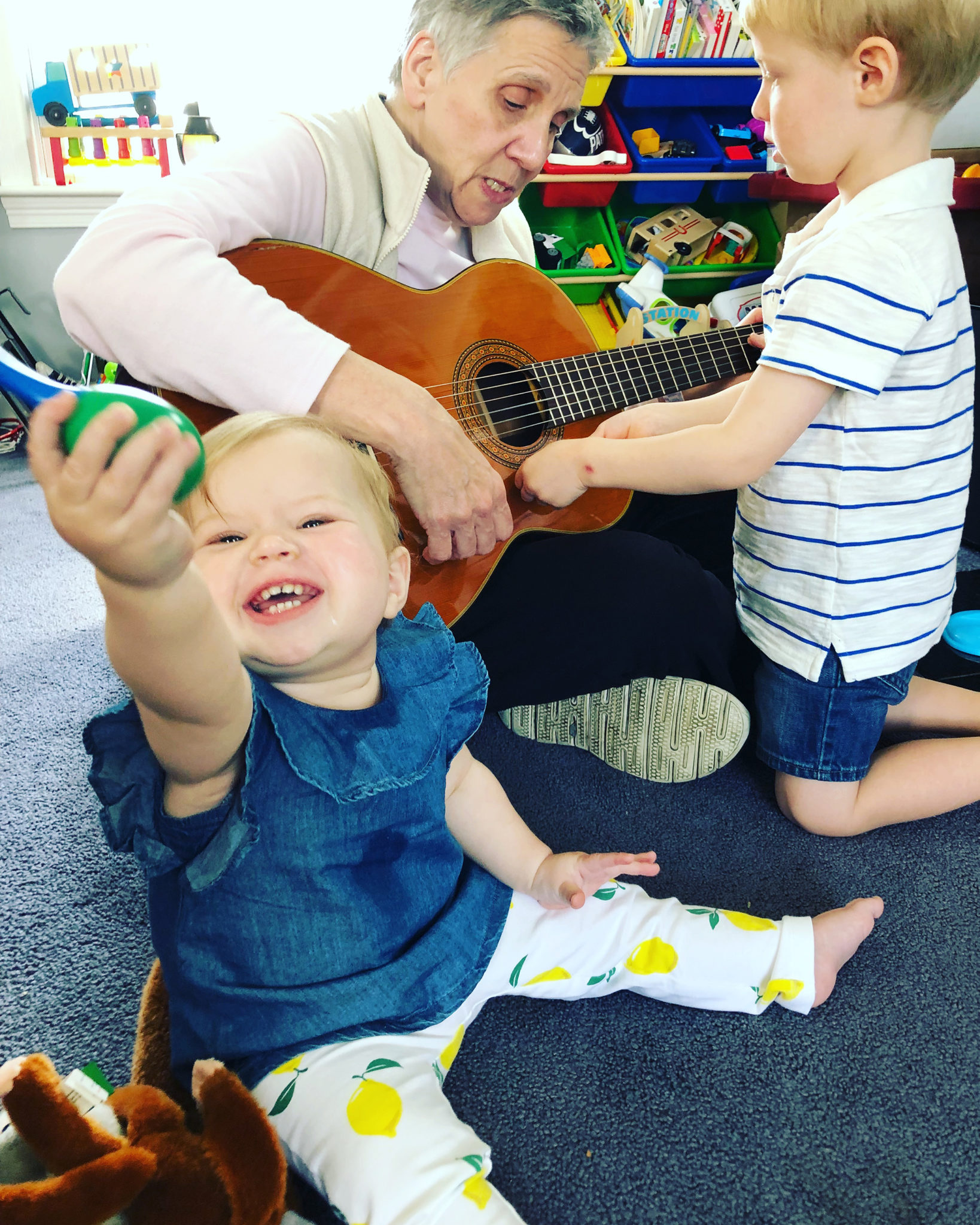As a board-certified music therapist, Joy Indomenico channels the power of music to comfort children with life-limiting illnesses. She can play 30 musical instruments, ranging from concert harp to Native American flute, and has been working with vulnerable kids for 40 years.
“I just keep on filling them with music,” she says with a gentle laugh.
Joy is a part of HopeHealth’s Pediatric Palliative Care (PediPal) team, which provides palliative care to children with progressive genetic disorders, cancer, major organ failure and other serious conditions.
One of her patients is Ryan*, a teenager with a rare blood disease and severe arthritis. In their virtual therapy sessions, Joy plays songs from Ryan’s favorite movies and video games on her electronic keyboard, while Ryan uses his own keyboard to engage in musical dialogues.
“He’s in a lot of pain, but he’s so engrossed in the music he says he doesn’t feel pain for our hour together, which is so amazing,” Joy says.
Medical research has linked music therapy to many physiological and psychological benefits, including:
- Less pain and anxiety. In a study of children with leukemia, patients who received music therapy during a spinal tap procedure had better pain scores and heart and respiratory rates.1
- Feelings of happiness and well-being. Music therapy can lift children’s moods even more than play therapy, according to a study of young patients in a pediatric hospital.2
- Stronger families. Musical activities promoted positive parent-child bonds in a study of parents of young children with disabilities and families facing social disadvantage.3
- Improved breathing and quality of life. Singing therapy was shown to improve respiratory status and quality of life among hospitalized children with cystic fibrosis.4
Joy’s youngest patients are babies often awaiting organ transplant surgeries or living with severe developmental disabilities. She places their tiny feet on the wooden sound board of her concert harp while she strums the strings softly.
“That vibration goes right through the baby’s body,” Joy says. “It seems to calm them down. It’s observable—their breathing rate goes down. Their comfort level definitely increases.”
Music has been Joy’s passion since she was a child. The daughter of a jazz trumpeter, she began accordion lessons at age 5 and taught herself guitar as a teenager. In college she studied piano and special education while volunteering to play guitar at a school for children with disabilities.
“I saw very early on that live music could change behaviors, how someone feels or how someone acts,” she says.
Experiencing music can help entire families feel better, especially for caregivers under the extreme stress of caring for a chronically ill child.
“Bringing music into the home can be therapeutic for the parents and any siblings. It just brings the tension level down in the house. It’s wonderful, the effect a vibratory musical instrument can have to change things,” Joy says.
* Patient names were changed to protect privacy.
SOURCES:
- Nhan T, Nilsson S, Hellström A-L, Bengtson A. Music Therapy to Reduce Pain and Anxiety in Children With Cancer Undergoing Lumbar Puncture: A Randomized Clinical Trial. Journal of Pediatric Oncology Nursing. 2010;27(3):146-155.
- Hendon C, Bohon LM. Hospitalized children’s mood differences during play and music therapy. Child Care Health Dev. 2008 Mar;34(2):141-4.
- Nicholson JM, Berthelsen D, Abad V, Williams K, Bradley J. Impact of music therapy to promote positive parenting and child development. J Health Psychol. 2008 Mar;13(2):226-38.
- Irons, J. Y., Kenny, D. T., McElrea, M., & Chang, A. B. (2012). Singing therapy for young people with cystic fibrosis: A randomized controlled pilot study. Music and Medicine, 4(3), 136–145.
HopeHealth cares for people of all ages with serious illnesses. Learn more about our palliative care and hospice care.
Questions about PediPal in Massachusetts? Contact us today at (844) 671-HOPE or Information@HopeHealthCo.org.

